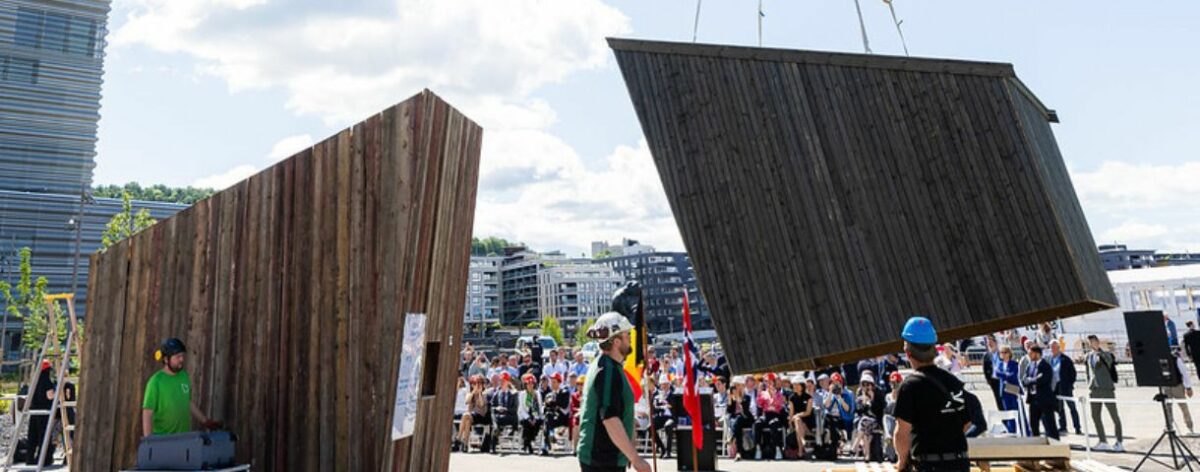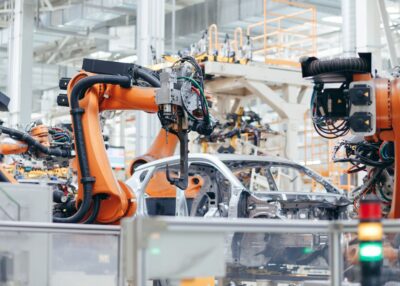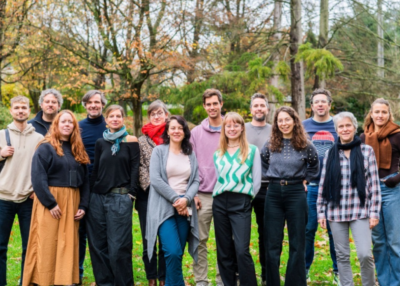
Regenerative design: from Brussels to Norway
Last June, 450 Belgian business leaders, federations and chambers of commerce headed for Norway on a large-scale Economic Mission, chaired by HRH Princess Astrid. On the packing list: expertise in a number of key sectors (design, sustainable construction, biopharmaceuticals, etc.) as well as a keen interest in the latest Scandinavian innovations.
Let’s face it, an economic mission is rarely a relaxing one. Participants took part in a wide-ranging programme of meetings with local businesses (“B2B”), seminars and company visits to the main players in the Belgian economy present in Norway. Representatives from the academic world were also present to strengthen cooperation with Norwegian research institutions, who value Belgium for its scientific excellence. And from what we can see, it was a great success!
Two countries with complementary strengths
Norway and Belgium enjoy a strong commercial relationship, with energy, sustainable development and biopharmaceuticals playing an important role. The good news for our businesses is that Norway is keen to diversify its economy further and is therefore interested in the added value our companies can offer in the fields of biopharmaceuticals and science (including vaccine exports) and offshore wind energy.
Committed to decarbonising its economy by 2030, Norway has also invested heavily in switching to zero-emission cars, despite the importance of its gas industry. A series of benefits have been offered to promote the use of these vehicles: 25% VAT exemptions, taxes on carbon dioxide and nitrogen oxide, parking benefits, tolls, and special ferry rates for zero-emission cars, etc.
A seat at the table in the electric vehicle industry
Thanks to all these initiatives, the transition to electric vehicles (EVs) has reached unprecedented levels in Norway, with 80% of new cars being made fully electric. According to the Norwegian Electric Vehicle Association, the market share of electric vehicles could even reach 95% in 2024.
The only hitch is that the country does not have its own automotive industry. This is due in part to factors such as Norway’s relatively small population, the high production costs and a lack of historical expertise in the industry.
A golden opportunity for our region, a major exporter in the sector. Unsurprisingly, the largest category of Brussels’ exports to Norway is transport equipment, which accounted for almost all exports in 2023, with a percentage of 97.6% and a value of 121 million euros. These are almost exclusively motor vehicles designed primarily for passenger transport.
Sustainable development is the shared goal
Thanks to numerous investments in renewable energies and zero-carbon transport, Norway has achieved excellent sustainability results on a global scale: the United Nations ranks Norway seventh, with 82% of the Sustainable Development Goals achieved.
However, when it comes to sustainable construction and regenerative design, it’s Brussels that leads the way. Because regenerative design goes beyond “just” sustainability.
Regenerative is the new passive
While sustainable design seeks to minimise the negative impact of buildings on the environment, regenerative design aspires to restore and revitalise natural ecosystems.
This includes the use of technical materials, such as CO₂-capturing paints, and geo-sourced and bio-sourced materials, which not only limit their carbon footprint, but actively contribute to capturing CO₂. Regenerative design also involves solutions favouring biodiversity and water management, by recreating natural habitats and returning grey water to the earth through infiltration systems.
Brussels is certainly not lacking strength in this discipline. Our businesses stand out for their innovative approach to sustainable construction. Emmanuel Malfeyt, coordinator of ecobuild.brussels, the hub.brussels cluster bringing together sustainable construction and renovation businesses, explains: “Drawing on the expertise they’ve already acquired in energy-efficient buildings, our businesses are constantly striving to push the boundaries. The lead taken by Brussels is stimulating them and fuelling their appetite for innovation in construction. Regenerative design is the next logical step, as it not only reduces our impact, but also restores ecosystems.”
By adopting regenerative design, Brussels is now taking sustainability to a new level, incorporating techniques that not only preserve the environment, but actively contribute to its regeneration. Regenerative design is first and foremost a team effort: apart from the holistic vision of the designer/architect, it’s also important for smaller structures to contribute, each with their own cutting-edge expertise to achieve a more ambitious result.
Showcasing our strengths abroad
Circular procurement is also a cornerstone of Brussels’ sustainable practices, ensuring that materials used in construction are recycled and reused, thereby reducing waste and environmental impact.
By showcasing exemplary projects and facilitating international exchanges, hub.brussels aims to reinforce Brussels’ position as a world leader in sustainable construction innovation. This was demonstrated by the Ice Box Challenge, in which two one-ton blocks of ice were placed in two wooden boxes in front of the Oslo Opera House. The first was built in a traditional way, the second using the best passive materials. We’ll let you guess which block melted the fastest…
Now it’s your turn!
Want to find out more about relations between Brussels and Norway? Check out our analytics.brussels data visualisation platform!
Want to take part in an economic mission with hub.brussels? See our international calendar!
More news:

After Audi: Brussels foreign trade in the first half of 2025
Posted on 28/01/2026
